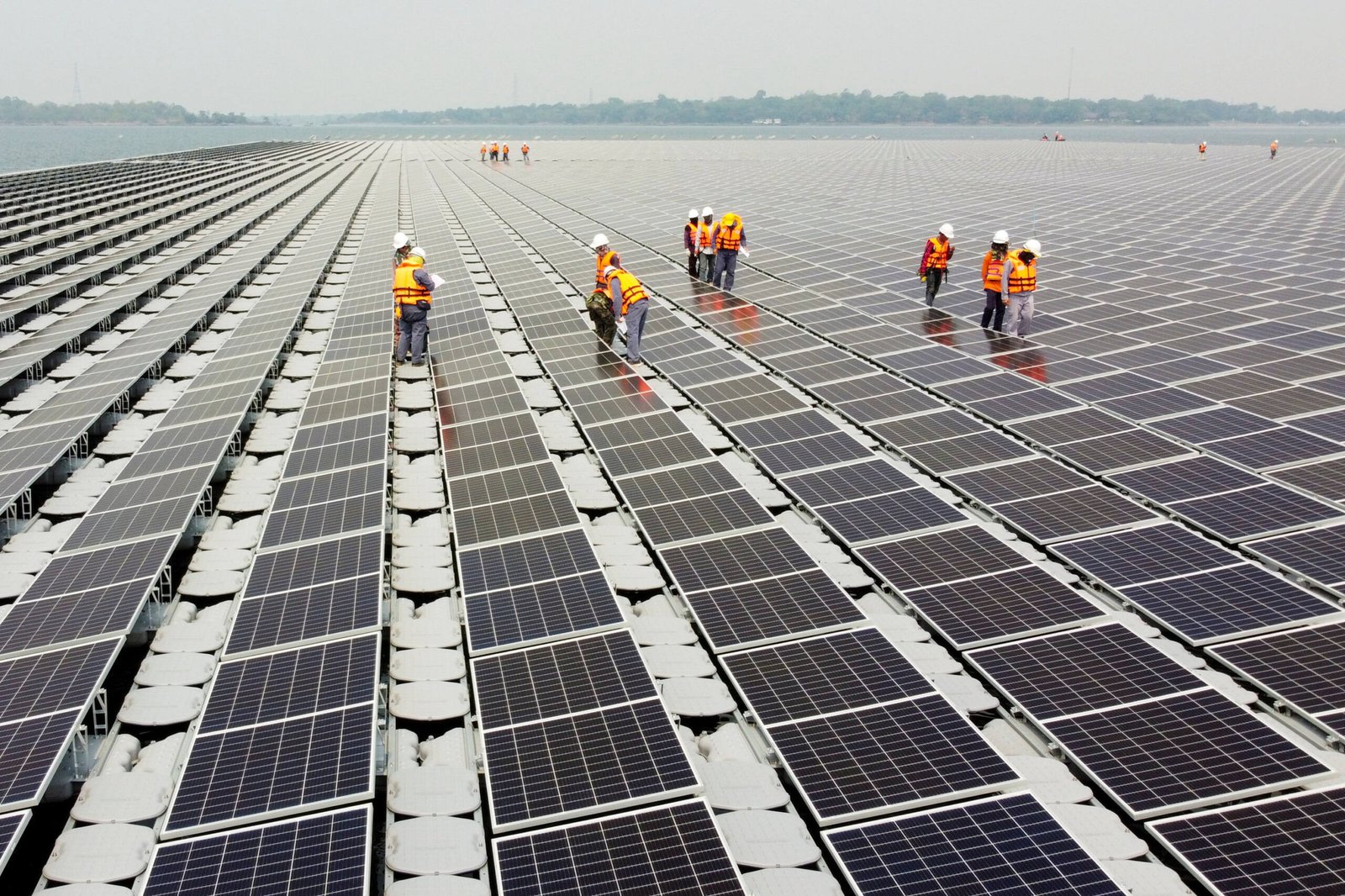The Biden administration is reportedly set to grant a request by South Korea’s Hanwha Qcells to reverse a two-year-old trade exemption.
In a significant move poised to impact the global solar industry, the Biden administration is reportedly set to grant a request by South Korea’s Hanwha Qcells to reverse a two-year-old trade exemption. This exemption has allowed imports of a dominant solar panel technology from China and other countries to sidestep tariffs, according to two sources familiar with the White House’s plans revealed on Wednesday.
The anticipated decision has already spurred a notable response in the market, with shares of solar manufacturers, including U.S.-based First Solar (FSLR.O), experiencing an upswing in afternoon trade.
Hanwha Qcells, a key player in the solar industry, made the request to protect its planned $2.5 billion expansion of U.S. solar manufacturing operations against the competition posed by cheaper Asian-made products.
The request was formally submitted by the solar division of Hanwha Corp, a Korean conglomerate, on February 23 to the U.S. Trade Representative. Notably, seven other companies, collectively investing billions in U.S. solar factories, have backed this petition.
While no official timeline has been disclosed regarding the reversal, the potential imposition of duties on imports of bifacial panels, a primary technology in utility-scale solar projects, is expected to bolster the more than 40 solar equipment factories planned since President Joe Biden signed the Inflation Reduction Act in 2022. These factories are integral to Biden’s ambitious plans to combat climate change, rejuvenate American manufacturing, and foster millions of union jobs.
Past trade remedies in the solar industry have sparked divisions, particularly among installers and developers who rely on inexpensive imports to maintain project cost efficiency. The Solar Energy Industries Association (SEIA), a prominent trade group, has been vocal in its advocacy for measures that support increased domestic manufacturing of solar modules.
However, the move to reverse the exemption aligns with the Biden administration’s broader agenda to address challenges posed by China’s substantial investment in clean energy goods manufacturing. It underscores one of Biden’s central arguments for his economic policies, emphasizing the transformation of the U.S. energy economy while combating climate change.
The decision to revoke the exemption follows bipartisan pressure, with a group of U.S. senators urging Biden to strengthen tariffs on Chinese solar panels. Hanwha Qcells‘ petition, supported by other leading solar manufacturers with U.S. factories, underscores the industry’s collective efforts to ensure fair competition and safeguard domestic manufacturing interests.
As the solar industry awaits the formal announcement of the reversal, the potential impact on global solar trade dynamics remains significant. The decision is poised to shape the trajectory of U.S. solar manufacturing, influencing investment decisions and market competitiveness in the coming years.
In the face of evolving market conditions and geopolitical dynamics, the Biden administration’s stance on solar trade policies holds broader implications for the renewable energy sector’s growth and sustainability goals on a global scale.
